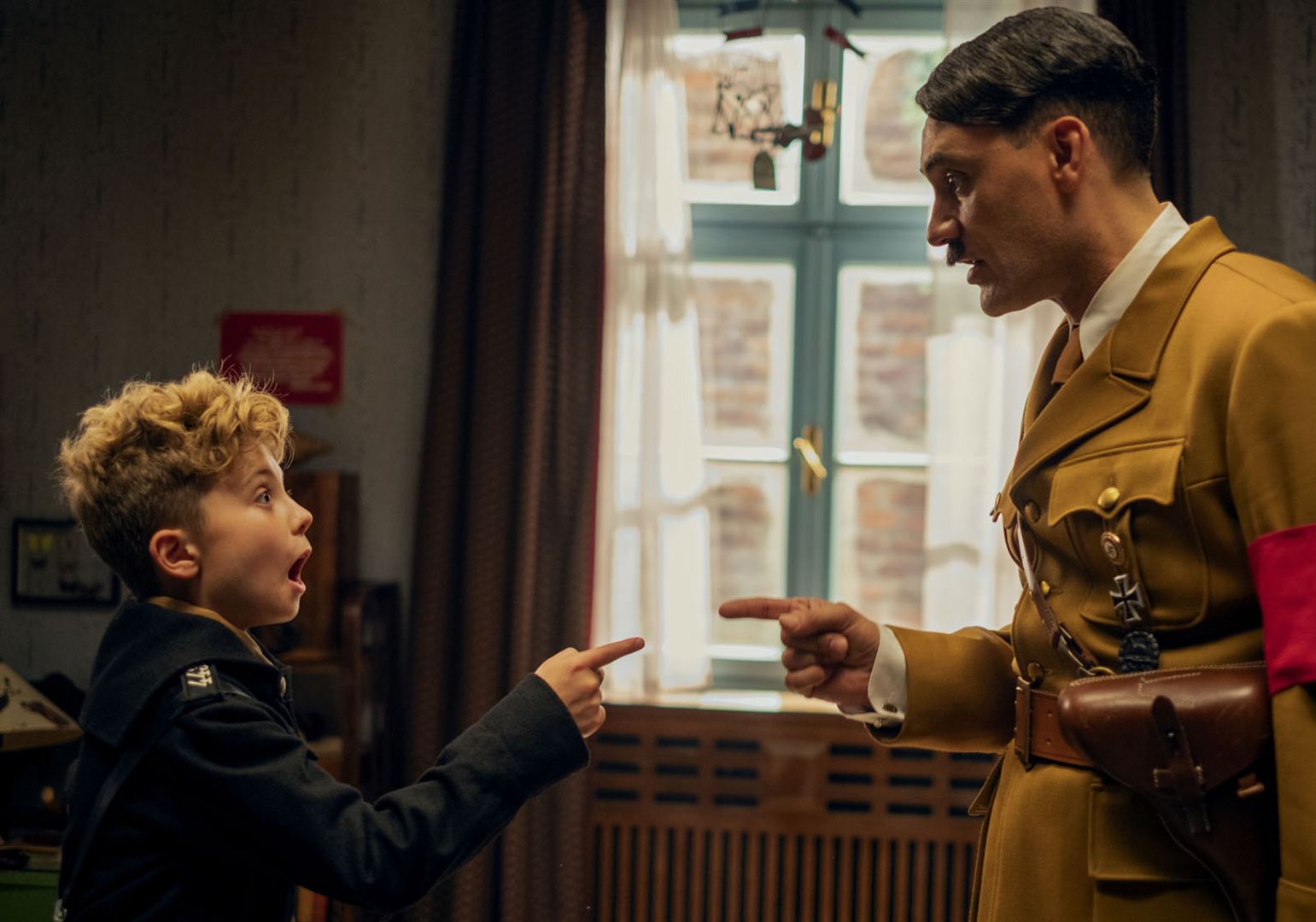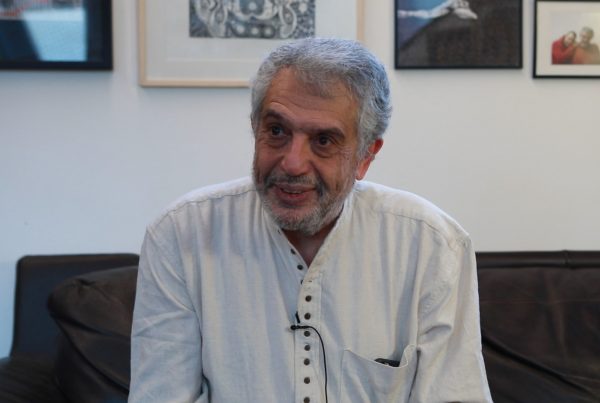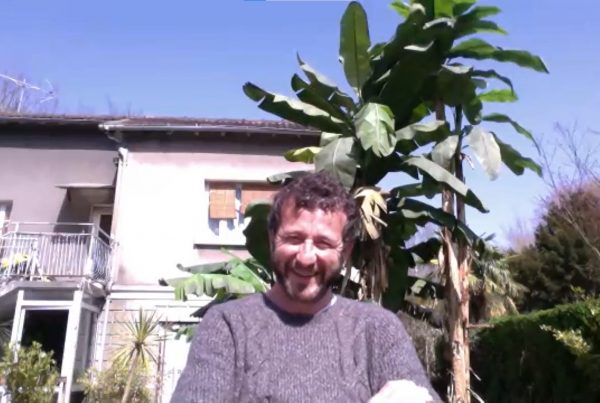Jojo Rabbit – MoonReich Kingdom
Taika Waititi, the new Disney loved member, debuts his run for the Oscars with a hilarious comedy about a child whose imaginary friend is Adolf Hitler.
By Julien Lada
Translated by : Laetitia Guidicelli
![]() Reading Time 5 min
Reading Time 5 min
At 44, Taika Waititi is the new Hollywood king. The New Zealand filmmaker is known by his short film nominated in 2004 at the Oscar : Two Cars, One Night. Furthermore, he directed Thor : Ragnarok and should direct Thor, Love and Thunder. Fox, who recently bought Disney, got its hands on Fox Searchlight and among its projetcs, Jojo Rabbit, produced, written and directed by Waititi, will be one of a kind.
The first images and trailers presents the tone : Jojo Rabbit is a satire that takes place under the III Reich. Distant adaptation of the international bestseller novel Caging Skies by Christine Leunens, it follows the adventure of Jojo Beltzer (Roman Griffin Davis), alias Jojo Rabbit, member of Hitler’s youth. A fervent nazi believer, he invented an imaginary friend : Adolf Hitler, impersonated by Watiti himself. However the young man discovers that his mother (Scarlett Johansson) is part of the resistance and shelters, at her house, a young jewish girl, Elsa (Thomasin McKenzie). His world will collapse making him question his engagement and his fictionnal friendship.
Difficult to address a more cleaving subject than the painful past of nazism from the comedy’s angle. Jojo Rabbit doesn’t hold back : « Heil Hitler ! » is said many times. The film is made to cringe your teeth and to see such a content allowed at Disney turns out to be a pleasant surprise. Of jewish origin (and maori), Taika Waititi enrolls the long list of filmmakers who used squeaky laugh to address the painful memory of the Holocauste. For instance, Mel Brooks Producers, whose false musical « Hitler’s fall » influenced Jojo Rabbit. In both, (Brooks saluted his young colleague work), laughter doesn’t dodge the pain and the horror of nazism.

Brilliant filmic adaptation of the novel, Taika Waititi’s film exceeds his historical frame to create a human fable
Inglorious Boy-Scout
Jojo Rabbit is brilliant for dressing its speech under a subtle form mixing the fable and the coming of age movie, even more than comedy. Humor is not an end, the opportunity to align questionable pastiches for the simple pleasure of transgression. There is no moral posture, laughter saves and serves the humanity side not yet shut. Besides, behind this grotesque but machiavellian Hitler, a learning process for the young Jojo.
Jojo Rabbit reminds us of Wes Anderson’s film Moonrise Kingdom. Waititi borrows a part of his pastel shades, his visual formalism and refined playlists. He borrows mainly this approach of a troubled teenage and the discovery of love. A kissing scene at the beach playing Temps de l’amour by Françoise Hardy for one becomes a reconciliatory danse for the other. The success of Jojo Rabbit lives there, in the immediate complicity that rises between the revelation Roman Griffin Davis and the fantastic Thomasin McKenzie, and confirms his birth as a new talent to follow in Hollywod after the excellent Leave No Trace directed by Debra Granik.
Brilliant filmic adaptation of the novel, Taika Waititi’s film exceeds his historical frame to create a human fable, transported by a romanesque sens that never takes the advantage over the painful events pictured. A movie that probably only Taika Waititi could allow himself to direct alongside Disney but that should remind that satire, as cinema, has no limits when well done.
Voir aussi


